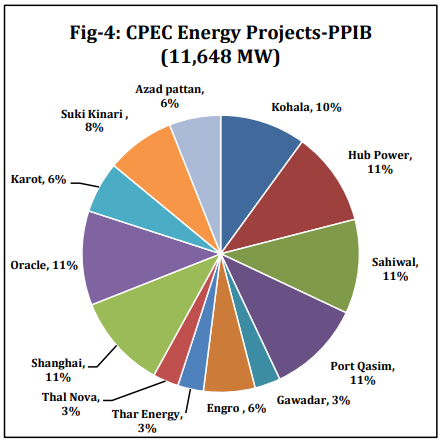INP-WealthPk
Ayesha Saba
Pakistan’s energy crisis is one of the single largest drains on the country’s economy. In order to enhance industrialization and economic growth, the government should develop strong short, medium and long-term strategies in which the provision of affordable electricity must get priority.
Dr. Liaquat Ali Shah, Executive Director and Head of Policy Division at CPEC Authority, said while talking to WealthPK that any nation's potential to advance economically and raise the standard of living for its people depends fundamentally on the availability of affordable electricity.
“Pakistan has a significantly lower annual per capita electricity consumption as compared to the rest of world. Affordable electricity is vital for improving living standards and increasing economic growth of the country,” he stated.
“To hedge against this vulnerability, Pakistan should work to reduce the country's rising reliance on imported fuels,” he said.
Dr. Liaquat said Pakistan has made a tremendous effort to cope with electricity shortages, but it still needs reforms.
“This could be done in a number of ways, including switching towards indigenous energy sources by fully exploiting the considerable hydropower potential of the country, and by speeding up the development of local coal reserves,” he recommended.
Dr. Liaquat said the foreign direct investment (FDI) under the umbrella of China-Pakistan Economic Corridor (CPEC) is a major opportunity for Pakistan, especially in the arena of resolving Pakistan’s energy crisis. He mentioned that CPEC includes the construction of many power production projects on priority because electricity is also required for completion of mega projects under CPEC.
According to the Minister of State for Petroleum Musadik Masood Malik, the solution to Pakistan’s problem lies in continuously improving the electricity, gas and oil infrastructure.
“Run-of-river projects under CPEC are very important for our national interests and security. However, despite the fact that CPEC has improved the country's investment climate and efficiency in the energy industry, more work remains to be done,” he said.
According to the Economic Survey of Pakistan 2021-22, overall, 13 power generation projects of 11,648MW are being facilitated by Private Power and Infrastructure Board (PPIB) under CPEC. These include four hydropower projects of 3,428MW, five Thar coal-based projects of 3,960MW, four imported coal-based projects of 4,260MW, and a 660kV High-Voltage Direct Current (HVDC) Transmission Line Project. Out of these, three imported coal-based power projects of 3,960MW and one Thar coal-based power project of 660MW have been commissioned, while ±660kV Matiari-Lahore HVDC Transmission Line Project has also started operations on a commercial basis with effect from 1st September, 2021. Furthermore, another nine IPPs (independent power producers) of 7,028MW, including four hydro IPPs of 3,428MW, four Thar coal-based IPPs of 3,300MW, and one imported coal-based IPP of 300MW, are at different stages of processing.

Source: Pakistan Economic Survey 2021-22
By expanding the system's generation and transmission capacity, Pakistan is successfully marching towards addressing its energy crisis, which has an effect on all facets of the economy. The energy sector is now dealing with a variety of problems that need to be solved, such as improving the energy mix to deliver energy at a lower cost, and resolving other energy-related challenges that are straining the national budget.



